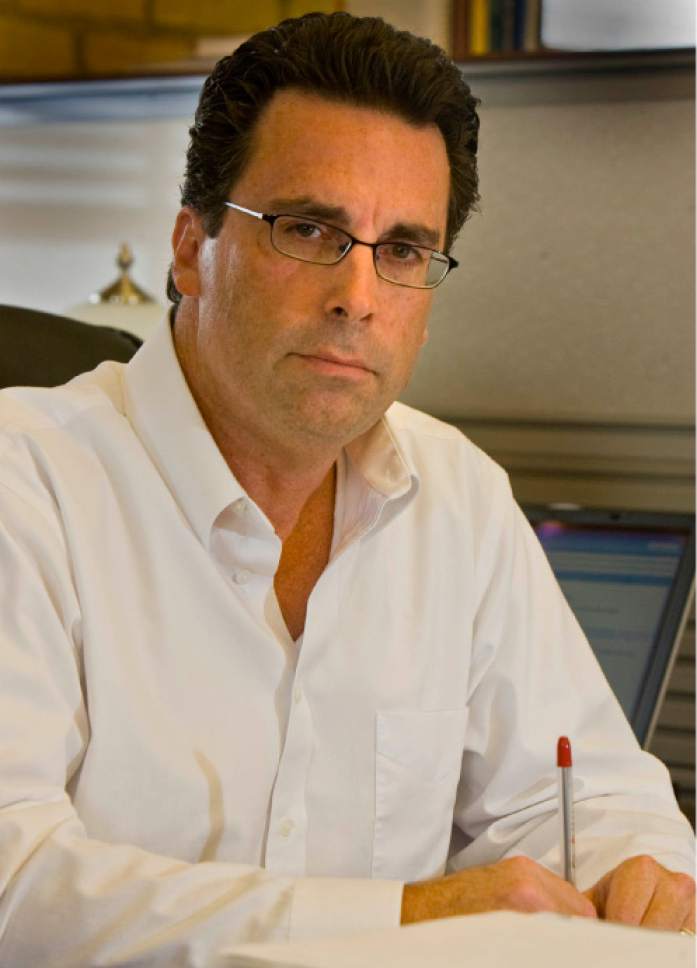This is an archived article that was published on sltrib.com in 2017, and information in the article may be outdated. It is provided only for personal research purposes and may not be reprinted.
When Sutherland Institute transitioned from my leadership to the leadership of my friend Boyd Matheson, it, in large part, transitioned from a focus on public policy to a focus on public relations. We did and do both but our focus represented and represents our professional experience. Sutherland Institute today is not the same Sutherland Institute of yesterday in at least this way. Growing organizations tend to pivot over time. Sutherland is no exception.
Recently, voices representing the Alliance for a Better Utah (ABU) took umbrage with a Sutherland campaign in support of changing the monument designation for Bears Ears. As you might expect from a craftsman with the vast public relations background of Boyd Matheson, the campaign produced quality promotional material. And, for that crime, ABU bristled, "This campaign exposes Sutherland as an organization willing to attempt to manipulate our emotions, rather than to persuade us through principled debate supported by sound research, to get us to support its views."
But perhaps Sutherland's higher crime was cited indignantly as being, "much more an advertising agency and propaganda machine for conservative policies than it is a contemplative, fact-based, conservative think tank."
Of course, I do not speak for Sutherland Institute, but my 14 years there give me some authority with which to respond to ABU. Rather than chastise Sutherland, ABU should follow its example. After all, ABU is neither an effective public policy group nor public relations machine. It could learn a thing or two from a successful organization.
Like ABU, Sutherland started small and was experiencing trouble finding its influence in Utah. We did a few things to change all of that in my first three years. First, we became more relevant and less ideological. Second, we fired the entire staff and turned over the Board of Trustees. Third, by January of 2004, we reinvented ourselves. And, fourth, we fearlessly engaged every issue with honesty and transparency (there is nothing to fear when you are right). Sutherland went from nothing to a respected and highly influential organization.
Organizations are only as good as the people running them and ideology disables good people. The most important lesson for ABU to learn from the Sutherland experience is to be dedicated to your cause but be prudent not ideological. Executing a serious game plan is made easier inside a culture of prudence than ideology. Sure, I've called an audible or two at the line of scrimmage that came across as ideological, as nontranscendent, but in all my years at Sutherland I never had to throw a Hail Mary or regret a play.
Sutherland Institute is more than it is at any moment today, just as it became more than what it was when I took the helm. It is a legacy of sound thought, well argued, and high influence. Its history is what makes it what it is and that successful history is why ABU can even raise a question about Sutherland's current course. Why criticize Sutherland for slick media? Has ABU ever won a Clio award? Sutherland has. ABU should follow its lead, not criticize it.
Sutherland Institute not only has a right to inveigh on the Bears Ears monument designation, it has a duty to do so. Sutherland has engaged public lands and environmental policy for as long as I can remember. We created an entire center years ago dedicated to public lands. Engaging those policies makes sense for a conservative public policy group. And, please, how about a little perspective and proportionality? If Bears Ears flips, ABU should flash its teeth more at Trump-loving Sen. Orrin Hatch than Sutherland Institute.
So, quit whining and get to work ABU — and be smart about it. Sen. Mike Lee has an intriguing project underway to address social capital. Isn't social capital something progressives believe in? Reach out and partner up. ABU can choose to continue to be ideological or influential in Utah. But it can't be both.
Paul Mero is CEO and president of Next Generation Freedom Fund and served as president of Sutherland Institute for 14 years.



